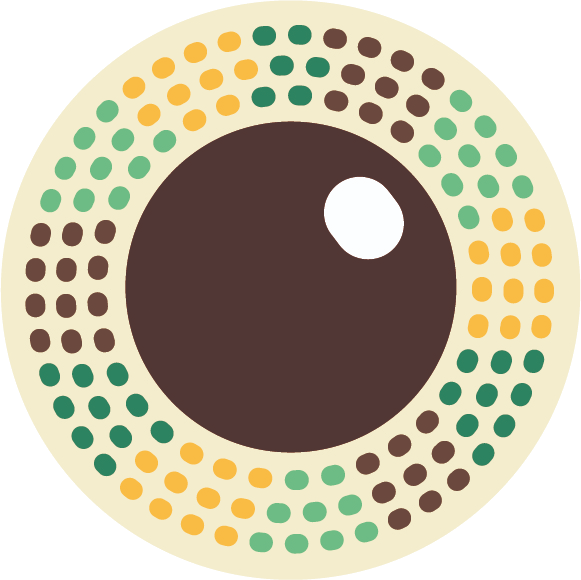AFRIKANSK HVIDBUGET DVÆRGPINDSVIN
SCIENTIFIC NAME
Atelerix Albiventris
LIFESPAN
My experience is approximately 4-7 years, but they can get older.
SEX DIFFERENCE
In females, there is a smaller gap between the genital organ and the anus. In the case of the male, there is a much larger gap, as the genital organ sits further up on the stomach, it is seen as a small navel in the middle of the stomach.
APPEARANCE
They become 17-25 cm.
The adult males weigh around 400-600g, and the adult females weigh around 250-500g.
TEMPERATURE
You have to remember that an African hedgehog should be in a warm environment. The temperature should be kept between 21 and 27 degrees Celsius. Below these temperatures, the hedgehog's activity level will decrease, and their immune system may be compromised, making them susceptible to infections. If the ambient temperature drops below 18 degrees Celsius, hedgehogs will enter a form of dormancy characterized by stiffness and lethargy. African dwarf hedgehogs apparently do not need to hibernate in captivity.
FEED
A Hedgehogs feed should contain at least 32% protein, 12% - 16% fat, and 8 - 10% fiber. The feed should contain a minimal amount of rice or grain, as hedgehogs digest these poorly. Hedgehogs are meat and insect eaters, so they should be supplemented with insects daily. These can be frozen or live, such as grasshoppers, crickets, snail eggs, soldier fly larvae, chocolate cockroaches, wax moth larvae, etc. You can also offer cooked or scrambled eggs mixed with a little Mazuri powder, cooked chicken, etc. Be cautious not to feed too much fat, as hedgehogs can easily become overweight and develop "fatty liver" disease. Therefore, consider the fat content in the feed, preferably not exceeding 12% - 16%. It's important to feed according to the hedgehog's needs. Some cat foods contain very high protein content (35% - 38%) with low fat content. It's preferable to choose cat food without grain and rice as fillers, as hedgehogs cannot absorb or utilize these in their digestive system. You can also offer fruits or vegetables, although not all hedgehogs will eat these. It's important to note that they can develop diarrhea. Fruit & vegetable suggestions include apples, peas (raw or cooked), cucumber, bok choy, herbs, bananas, strawberries, watermelon, cantaloupe, etc.
A mature male hedgehog weighing around 500g eats about 1-2 tablespoons of basic feed or 1-2 tablespoons of insects such as grasshoppers, soldier fly larvae, buffalo worms, cockroaches, crickets, and wax moth larvae. Females and young hedgehogs eat slightly less. Adjust the amount of food according to your hedgehog's needs and weigh it occasionally to avoid overweight. Hedgehogs cannot tolerate very acidic foods such as pineapples, kiwi, or citrus fruits. They also cannot tolerate grapes and raisins. As a base feed, you can use cat dry food such as Optima nova Sterilised (Chicken), Hill's Science plan young adult Sterilised (Chicken), Concept for life – light (Chicken), Royal Canin Sterilised (Chicken), mixed with hedgehog feed. I use Mazuri hedgehog feed mixed with cat dry foods Optima nova Sterilised, Hill's Science plan young adult Sterilised, and Concept for life – light (see the website www.pindsvin-Haycock.dk for feeding advice). When choosing the right hedgehog feed, it's crucial to stay within the recommended percentage ranges. Above all, it's important to choose a good base feed based on meat and not grains and fat. Hedgehogs should always have access to basic feed and fresh water, which should be changed daily, so choose high solid heavy bowls that don't tip over.
BEHAVIOR:
African dwarf hedgehogs are solitary animals, like Danish hedgehogs, and are not typically social. They normally live and move alone and therefore thrive best alone. Some breeders have different experiences, so there are exceptions to this rule. Personally, I believe that if two females live together, one will always be dominated by the other. Two males will typically try to fight and harm each other; I would not attempt this.
STIMULATION:
To activate your hedgehog, u should have a large wheel with a solid bottom (no bars in the wheel) or a UFO wheel with a diameter of around 30 cm. A hedgehog runs about 4-6 km in one night, and as mentioned, they need the exercise to avoid becoming overweight. You can make the cage a bit more exciting with branches, moss, cones, leaves, activity balls, hay balls, multiple burrows, houses, pipes of various sizes, etc. Personally, I always put things from nature in the freezer for 24 hours before using them in the cage (to kill mites and other bugs). It should of course be placed at the bottom since hedgehogs don't climb so high. You should be aware of the size of the items used in the cage, as it's important that the hedgehog cannot get stuck.
REPRODUCTION:
Males become sexually mature around 8-10 weeks of age, while females become sexually mature at 10-12 weeks. One should not begin breeding until the female is around 7-12 months old. African pygmy hedgehogs come into heat several times a year, unlike the European hedgehog. Females are pregnant for 35 days, and litter sizes can vary, but 2-5 offspring are most common. Pregnancy is very hard on the female, and she should have total peace! They stress very easily and may even eat their offspring. If you can hear faint squeaks from the cage, give the female peace for the first 12-14 days, during which you only change food and water and clean the litter box. It is very important that the bowls are always filled, as the female can become stressed for that reason as well. African pygmy hedgehogs can have 2-3 litters per year, but I recommend only one or two litters per year. After the first 10-12 days, the offspring are no longer at risk of being eaten or rejected by the mother. When the offspring are around 3-4 weeks old, they begin to move around and eat. It is recommended to leave them with their mother until they are about 7 weeks old, as they learn a lot and become stronger from it.
SIGNS OF ILLNESS/SUFFERING:
If the hedgehog has reduced or no appetite, sleeps more than usual, is passive/drowsy, limps, or may have been stuck, fallen from something, vomits, has bloody stool, etc., contact a veterinarian! There are a few but very good veterinarians who specialize in hedgehogs. Parasites in hedgehogs can occur. Blood mites, hay mites, fungal infections, etc. This is treated with various remedies, ask the breeder or veterinarian.
REMEMBER:
That hedgehogs are hobby animals and not pets. They are active at dusk and night and need peace during the day. In the summer months, they wake up very late, and that should be respected. You can slowly get them used to waking up earlier. For these reasons, hedgehogs are NOT suitable for children.
DID YOU KNOW?
- A hedgehog has 36 teeth, which are very similar to the teeth of a predator.
- An adult hedgehog has 5,000-8,000 spines. Hedgehogs have a well-developed sense of smell, hearing, and taste.
- They don't see very well.
- Hedgehogs will never bite first in defense; they will always curl up to protect themselves.

